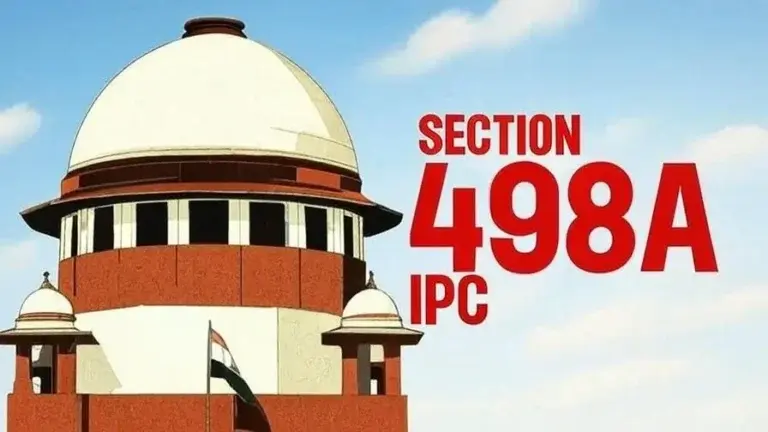Supreme Court adopts Allahabad HC guidelines to prevent misuse of IPC Section 498A

New Delhi, July 23, 2025 :
In a key ruling, the Supreme Court granted a dowry harassment reprieve to a man and his family. The court raised concerns over IPC Section 498A misuse. His estranged wife, a police officer, accused him and his family. The SC protects husband in dowry case by staying arrest for two months. It also invoked Article 142 Supreme Court marriage settlement powers to finalize the couple’s divorce. The court took serious note of what it implied was a false dowry complaint India. It directed the woman to issue a public apology for her actions.
The ruling by a bench comprising Chief Justice D.Y. Chandrachud, Justice B.R. Gavai, and Justice A.G. Masih follows the framework established by the Allahabad High Court in 2022. That court had issued guidelines to prevent the indiscriminate use of IPC Section 498A—intended to protect married women from cruelty—after observing a rising number of frivolous or exaggerated complaints.
The Supreme Court used Article 142 to settle the dispute between IPS officer Shivangi Bansal and her husband, Neel Goel.The court not only stayed their arrest but also dissolved their marriage by mutual consent. According to the bench, the intent was to bring closure to the dispute while preventing further legal entanglements.
The bench said Section 498A is vital for protecting women from real abuse. However, it stressed that misuse of the law will not be tolerated. The court reminded state authorities to follow judicial safeguards. These include preliminary inquiries, family welfare committee reviews, and a cooling-off period before making arrests.
As part of the Supreme Court’s order, Shivangi Bansal is required to publish a formal apology in a prominent newspaper acknowledging the distress caused to her husband and his family. Legal observers believe this directive is unprecedented and sends a strong message regarding the consequences of false or exaggerated allegations.
Legal experts have welcomed the verdict, calling it a balanced and reformative approach.“This judgment shows the Supreme Court values not just prosecution, but also fairness and reconciliation,” said senior advocate Priya Hingorani.
The broader implications of this ruling are likely to affect future matrimonial disputes, particularly among individuals in government service. By using Article 142, the court paved the way for quicker resolution of both marital and criminal disputes in complex family cases..
The ruling also aligns with the Court’s past observations where it criticized the automatic arrest of husbands and their families without proper inquiry. The SC had earlier noted that such practices often led to undue hardship and violated basic principles of justice.
This move shows the judiciary’s ongoing effort to ensure fair trials in marital disputes protecting real victims while guarding the rights of the falsely accused.
Source
